Price: Free
Phone:
Time to visit a place: 120 phút
Open Time: 7:00 AM - Close Time: 6:00 PM
Email: dnpupao@gmail.com
Address: Thon Ban Ke B, Lam Binh commune, Tuyen Quang Province
In addition to the cultural and architectural values, Pu Bao Temple has a profound human meaning that is preserved to this day, the temple is really an important highlight in the system of cultural tourist attractions. spirit on the land of Lam Binh (Tuyen Quang).
Pu Bao Temple, Lang Can Commune, in addition to worshiping Duc Cong, Nguyen The Quan, is also a place to worship the Village Citadel (worshiping gods who govern rivers and mountains such as Khau Ung Mountain God...) and Than Nong (worshiping four gods) Nature has an influence on agricultural life, which are four gods: God of Rain (Phap Vu), God of Clouds (Phap Van), God of Thunder (Phap Loi) and God of Flash (Phap Dien).
The Tay people in Tuyen Quang also have the concept of animistic things, they believe that every living thing and inanimate object has a resident soul. The belief in worshiping the village god and god is often expressed in spring festivals or traditional Tet. In gratitude, to express gratitude to the village's Thanh Hoang, the agricultural gods and Duke Nguyen The Quan, the people in the region organized the Long Tong festival at Pu Bao temple in the early spring, attracting thousands of attendees. This is a festival to worship the characters who have contributed to building and protecting the mountainous countryside, as well as wishing for a prosperous new year.
Organizing the festival with the concept of being a bridge between the past and the present is the cultural interference between the villages, and at the same time is a typical cultural feature in the cultural activities of the village. Therefore, the Long Tong festival at Pu Bao temple is not only meaningful to a family, but it is also an occasion for common religious activities of all communities in the region. In 2012, the People's Committee of Tuyen Quang province recognized Pu Bao temple relic as a provincial historical and cultural relic. On October 31, 2013, the Ministry of Culture, Sports and Tourism recognized Pu Bao Temple as a national historical relic.
Pu Bao Temple is located in Ban Ke B village, Lang Can commune, this is an ancient village of the Tay people. The temple is located on a flat land leaning against the majestic mountains and cool Nam Luong stream all year round. People in the Nguyen The family said that the temple was built in the Le Dynasty. In the past, the temple was built very simply with wooden columns and roofs with palm leaves. Through many lows of history, the temple was damaged and rebuilt many times. In 2006, the temple was restored. Since then, the temple has been preserved and restored by the people here and the descendants of the Nguyen The family.
In the temple, many relics and treasures are still preserved in the temple such as: Dao ordination of King Le Hien Tong in 1750; 02 Han Nom characters (classes as shamans); many crockery jars, crock pots, ceramic bowls dating back to the 17th and 18th centuries… There are also 02 wooden columns which are the remaining architectures of the old temple…
Mr. Nguyen The Minh said that, in order to show respect and gratitude to the village's tutelary god, the gods as well as the Duke of Nguyen The Quan, every year the descendants of the Nguyen The family in Lang Can together with the people in the region come back. Open the Long Tong festival. The festival usually takes place from January 3 to 15 (lunar calendar).
The performance of the Long Tong festival consists of two main parts: the ceremony and the festival; The Tay people believe that "the ritual part shows the spirit and the festival part shows the quintessence". The ceremony is held solemnly, the prestigious person in the village will represent the village to contact the gods, burn incense and beat drums to signal the time of the ceremony. The offerings are usually local products such as chicken, wine, banh chung, banh chung, banh xeo, sticky rice with new sticky rice, fruits, etc. At the beginning of the ceremony is the procession of the ceremony tray from Pu Bao temple to the place of worship. total. Then the shaman conducts the sacred rituals of the festival.
After the ceremony, the festival was conducted with a lively and joyful atmosphere and many unique folk games. The games related to typical rituals such as: Toss, tug of war, wrestling, walking on stilts, beat stilts, swing, beat nest, sing and answer sli luong, sing then… Currently, in the process of the festival As a result of the integration, exchange and acculturation, the Tay community lives intermingled with other ethnic groups in an area, thus having an influence on culture, lifestyle and customs. During the Long Tong festival, a number of new fun activities were organized such as cock fighting, volleyball, table tennis, cultural performances, exhibitions, etc.
In addition to the Long Tong festival, Pu Bao temple is also the place to hold the new rice festival on the 8th day of the 8th month (lunar calendar). On the 1st and 15th days of each month (lunar calendar), descendants of the Nguyen The family and local people come to burn incense to pray for health, a peaceful life, and a favorable crop.
For generations, Pu Bao temple has had a firm position in the local community's consciousness, transcending the family nature to become a place of religious and spiritual activities of the village community for generations. this.
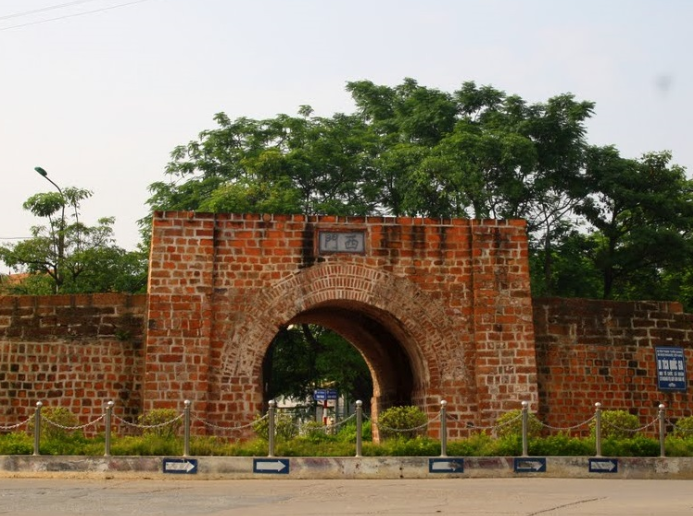
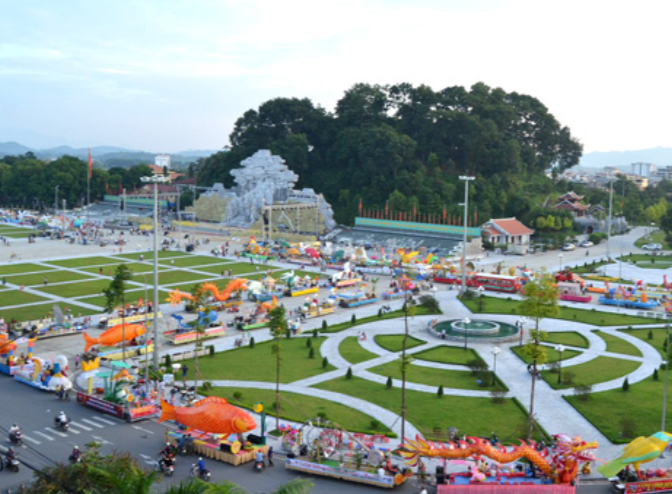
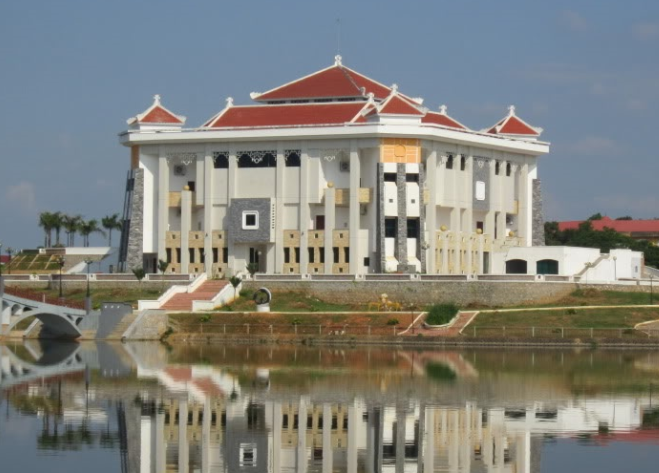

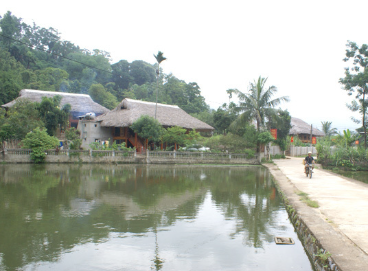
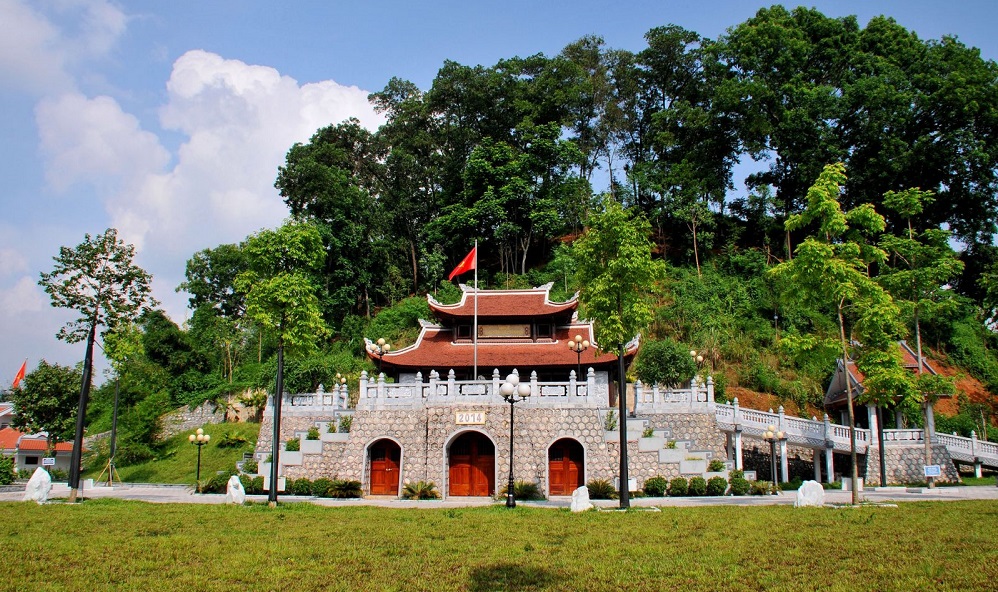
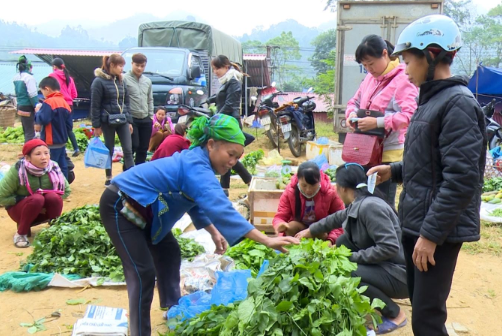

Distance: 1.55km
Distance: 1.83km
Distance: 2.57km
Distance: 2.68km
Distance: 2.70km
Distance: 6.99km
Distance: 7.27km
Distance: 8.32km
Distance: 8.55km
Distance: 890m
Distance: 900m
Distance: 900m
Distance: 2km
Distance: 0m
Distance: 8.66km
Distance: 9.57km
Distance: 10.13km
Distance: 12.83km
Distance: 13.62km
Distance: 13.72km
Distance: 13.77km
Distance: 13.78km
Distance: 13.94km
Distance: 15.14km
Distance: 15.67km
Distance: 16.17km
Distance: 18.42km
Distance: 18.49km
Distance: 18.50km
Distance: 14.14km


